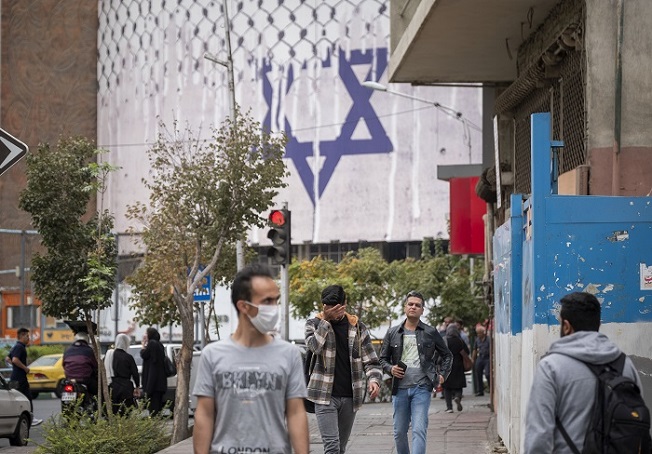
By Kayhan Life Staff
The Intelligence Organization of the Islamic Revolutionary Guard Corps (IRGC) has announced that any support for Israel in cyberspace is deemed unlawful, and individuals involved will face robust enforcement actions.
Following the announcement, made in mid-April, several media activists have been called in for questioning by judicial officials.
Recent social media posts have blamed escalating tensions between the Islamic Republic and Israel on the Iranian government and on groups linked to the Islamic Revolutionary Guard Corps. The writers of these posts have pointed to the ineffectiveness of the IRGC’s actions in response to Israel, and noted that the impact of Israeli rocket strikes on Iranian territory, particularly in Shiraz, has been greater than the harm inflicted by Iran on Israel. They have cited instances of rockets causing damage to civilian homes and properties in Shiraz and Iraqi Kurdistan.
There have also been endorsements by well-known individuals and public figures of the amicable relations between the citizens of Iran and Israel. One notable example was a tweet to that effect by Ali Karimi, the former captain of the Iranian national football team.
The Islamic Revolutionary Guard Corps Intelligence Organization (SAS) has warned Iranians to promptly report any instances of support for the Israeli government in the social space by providing details of the involved pages and individuals to the Gerdab platform. Gerdab is a cybercrime prevention system linked to the Revolutionary Guards.
The government’s security apparatus aims to prevent Iranians from expressing dissenting views on the war or demonstrating concerns about the potential ramifications of the war on social media.
Internal sources have indicated that the Tehran Prosecutor’s Office has initiated legal proceedings against the reformist newspaper Etemad, its director, and against Abbas Abdi, a well-known reformist, as well as against a reporter from the Jahan-e-Sanat newspaper for allegedly jeopardizing the psychological wellbeing of society. They have been summoned to provide clarifications to the Tehran Prosecutor’s Office.
Abdi cautioned against the repercussions of an attack on Israel in a note titled “Implications of Response versus Restraint.”
“Attempting deterrence using conventional armaments against a state that denies its legitimacy or seeks its eradication is futile and impracticable,” he said, in a note published by the Etemad newspaper on April 14.
Admittedly, despite numerous warnings from reformists regarding the heightening tensions in the Middle East, a significant proportion of reformists, including those who outwardly oppose certain government policies, have expressed their support for the missile and drone attacks carried out by the IRGC.
In a public statement, Hasan Khomeini, the grandson of Ruhollah Khomeini, praised the IRGC’s assault on Israel in his statement as a “courageous operation” and “honorable,” extending his congratulations to Ali Khamenei.
Journalist Mashallah Shamsolvaezin, a seasoned figure from the reformist press, remarked that the strategic approach towards the Israeli offensive was notably astute.
Unverified information indicates that after alerts issued by security authorities to media proprietors, there has been a noticeable scarcity of information regarding the aftermath of the conflict between Israel and the Islamic Republic.

